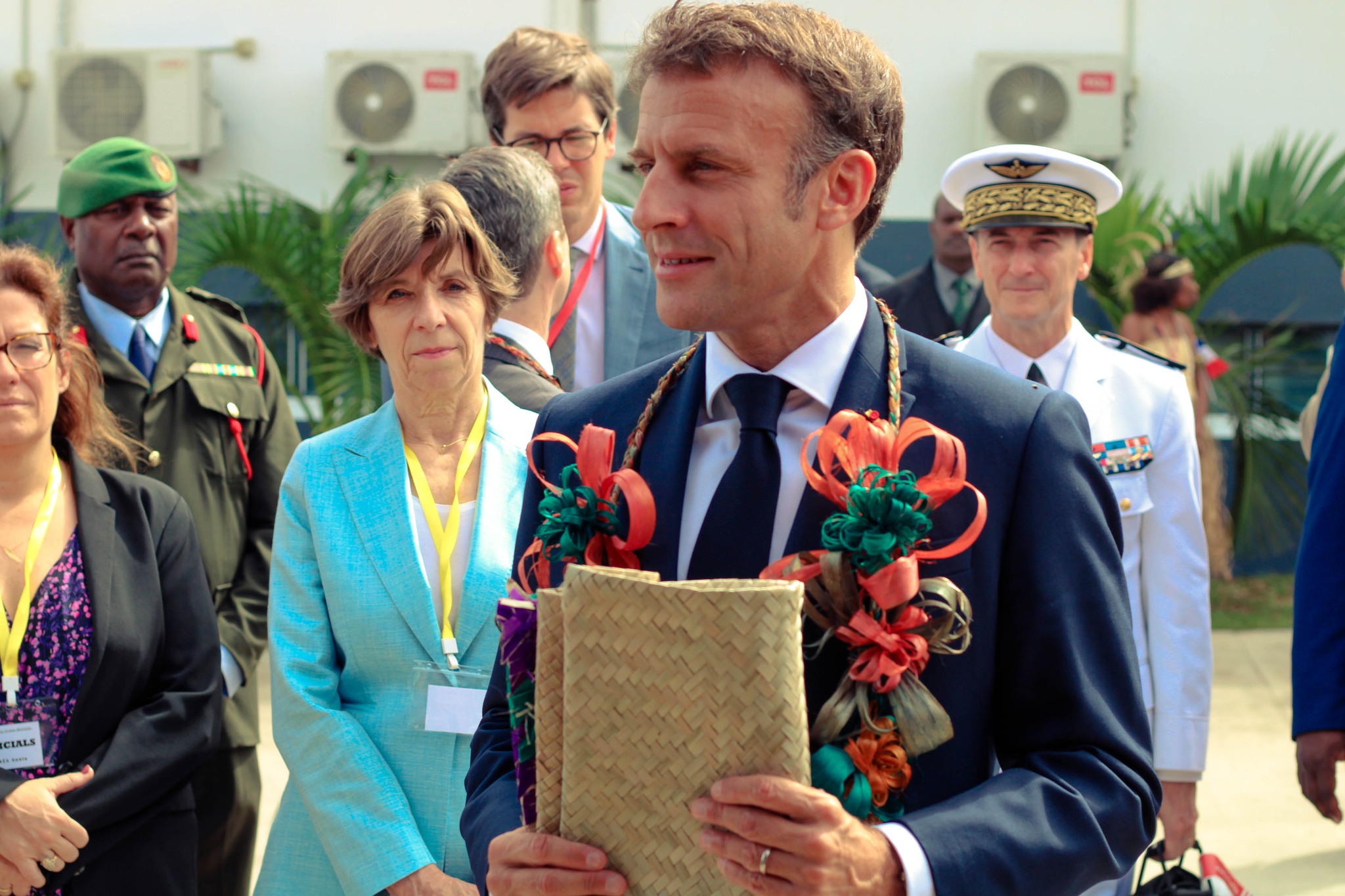French president Emmanuel Macron has denounced “new imperialism” in the Pacific during a landmark visit to the region, warning of a threat to the sovereignty of smaller states.
“There is in the Indo-Pacific and particularly in Oceania new imperialism appearing, and a power logic that is threatening the sovereignty of several states – the smallest, often the most fragile,” he said in Vanuatu on Thursday.
Macron – on the first visit by a sitting French leader to an independent Pacific state – sought to underscore France’s importance in a region over which China and the US are competing for military, economic and diplomatic influence.
“Our Indo-Pacific strategy is above all to defend through partnerships the independence and sovereignty of all states in the region that are ready to work with us,” Macron said.
France has 1.6 million citizens in the Asia-Pacific across seven overseas territories, including New Caledonia and French Polynesia, and an exclusive economic zone spanning nine million square kilometres (3.5m square miles).
As the U.S and its allies seek to counter China’s growing sway in the region, France offered an “alternative”, a presidential adviser said, with plans for expanded aid and development to confront natural catastrophes.
Macron last year relaunched France’s Indo-Pacific approach in the aftermath of a bitter row over a cancelled submarine contract with Australia, casting France as a balancing power in a region dominated by the tussle between China and the U.S.
He is on a five-day visit to the region, which has also included a stop in New Caledonia and will continue in Papua New Guinea. It is the first time a French president has travelled to independent countries in the Pacific region, and not only French overseas territories.
France has sovereignty over three territories in the Pacific: New Caledonia, French Polynesia and Wallis and Futuna.
New Caledonians rejected independence in a third referendum on the subject in December 2021, although the vote was boycotted by pro-independence movements largely backed by the indigenous Kanak population.
SOURCE: AFP/PACNEWS














